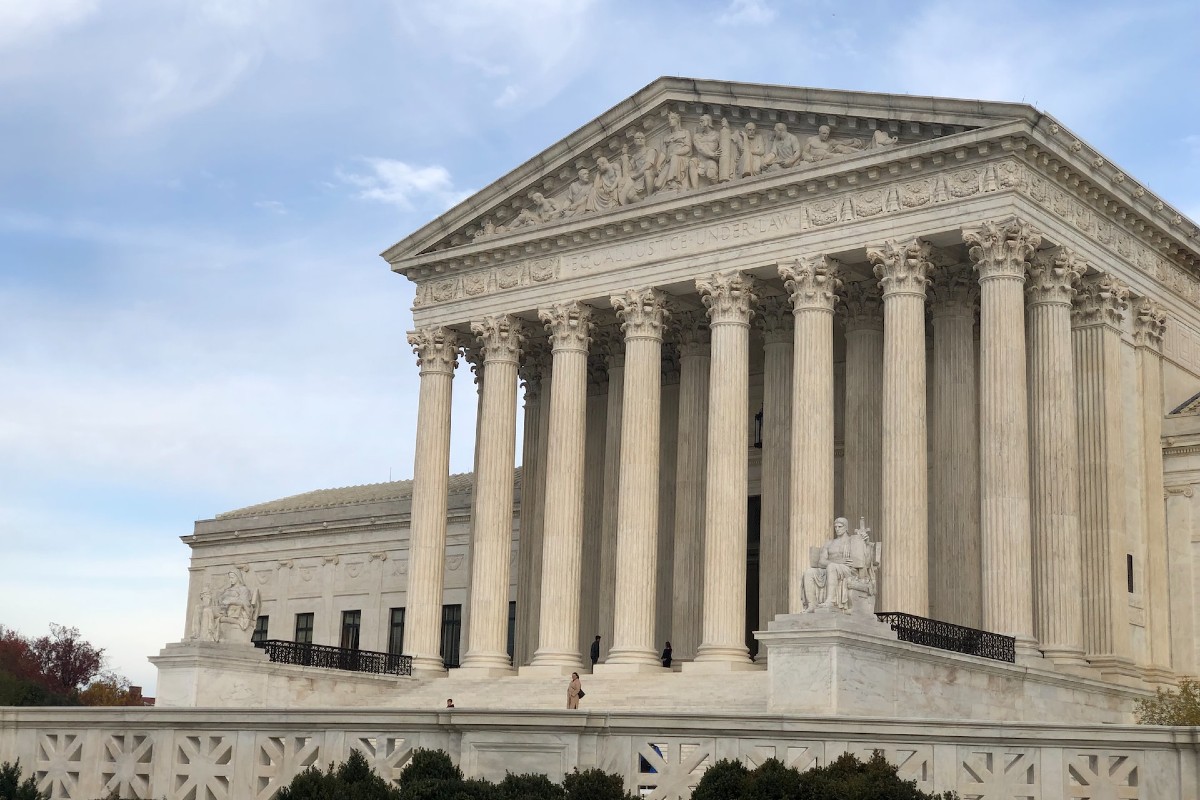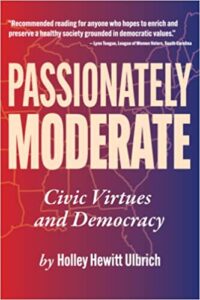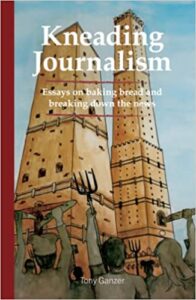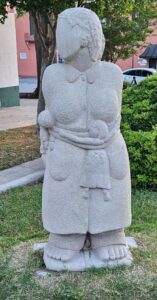STATEHOUSE REPORT | ISSUE 22.20 | May 19, 2023
NEWS BRIEFS: U.S. Supreme Court to hear whether voters exiled from SC-1
LOWCOUNTRY, Ariail: Rules for thee, not for me
COMMENTARY, Brack: Practice moderation to strengthen democracy
SPOTLIGHT: S.C. Senate Democratic Caucus
MY TURN, Kuipers: Keep momentum to end so-called tampon tax
FEEDBACK: Send us your thoughts
MYSTERY PHOTO: Magnificent building
U.S. Supreme Court to hear whether S.C. voters exiled

Staff reports | The U.S. Supreme Court this week agreed to decide whether South Carolina Republican lawmakers violated the rights of Black voters by unconstitutionally “exiling” them from the 1st congressional district, currently held by U.S. Rep. Nancy Mace, R-Charleston.
The case involves state Republican lawmakers challenging a lower court decision, which found that the state’s 1st Congressional District was an unlawful racial gerrymander. A three-judge panel in January found that South Carolina’s reapportionment mapmaker tried to keep the African American population below a certain target in the district, treating Charleston County “in a fundamentally different way than the rest of the state,” according to The Washington Post.
The lower court panel wrote in a Jan. 6 ruling: “The strategies he employed ultimately exiled over 30,000 African American citizens from their previous district and created a stark racial gerrymander of Charleston County and the City of Charleston.”
The U.S. Supreme Court’s Monday decision could determine whether a different congressional map will be put in place in 2024 for voters in Beaufort, Berkeley, Charleston, Colleton, Dorchester and Jasper counties.
In other recent headlines:
![]() S.C. inches towards 6-week abortion ban. South Carolina is moving toward a six-week abortion ban after Wednesday action by the S.C. House. The state Senate, which blocked a near-total abortion ban earlier this year but approved a similar six-week ban, will take up the measure next week. Five women — three Republicans, one Democrat and one independent — say they’re aligned to fight a ban. Also expected to battle it are three Republican senators and all of the chamber’s Democrats. If enacted, Virginia would be an outlier in the South as a place where women have traditional access to abortions.
S.C. inches towards 6-week abortion ban. South Carolina is moving toward a six-week abortion ban after Wednesday action by the S.C. House. The state Senate, which blocked a near-total abortion ban earlier this year but approved a similar six-week ban, will take up the measure next week. Five women — three Republicans, one Democrat and one independent — say they’re aligned to fight a ban. Also expected to battle it are three Republican senators and all of the chamber’s Democrats. If enacted, Virginia would be an outlier in the South as a place where women have traditional access to abortions.
S.C. teachers qualify for 6 weeks of paid parental leave. A bill signed into law Monday by Gov. Henry McMaster makes South Carolina the first state in the Southeast to offer teachers parental leave without requiring them to burn vacation or sick days or simply go without a paycheck. It takes effect June 26.
2024: Haley won’t back federal abortion ban based on weeks of gestation. GOP presidential candidate Nikki Haley said Sunday that a federal abortion ban isn’t politically possible based on a number of weeks of gestation in a national television interview — a marked difference with other Republican candidates. In other presidential news, Haley said she blames both parties on border issues and U.S. Sen. Tim Scott spoke in Greenville recently. Here are five takeaways.
Gaines named state’s comptroller general. Administrator Brian Gaines has been named the state’s new comptroller general following the resignation of the former officeholder, Richard Eckstrom, after a $3.5 billion reporting error.
Sextortion bill heading for governor’s desk. The bill honors a freshman legislator’s late son and could help decrease the number of people who fall prey to sexual extortion.
Carolina Squat car modification banned in S.C. The Carolina Squat refers to a modification in which a pickup or SUV is lifted on the front axle and lowered or maintained in place in the rear, jacking the front of the truck up in the air. The modification has been officially banned in South Carolina.
S.C. has nation’s 10th worst drivers according to study. The new report from Forbes Advisor used six metrics to compare the states, including the number of drunk drivers involved in fatal car accidents per 100,000 licensed drivers as well as the number of fatal car accidents involving a distracted driver and number of drivers who looked at a phone per mile. South Carolina was ranked 10th in the nation.
Rules for thee, not for me

Cartoonist Robert Arial, always creative and entertaining, offers this take on recent actions by the U.S. Supreme Court and ethical lapses by justices. Love the cartoon? Hate it? What do you think: feedback@statehousereport.com.
Practice moderation to strengthen democracy

By Andy Brack | Baseball legend Yogi Berra used to say a lot of things that were a little odd and funny, but they often had little – and big – kernels of truth.
 When considering what’s happening across America in politics these days, this Yogi-ism seems particularly insightful: “If you don’t know where you are going, you might wind up someplace else.”
When considering what’s happening across America in politics these days, this Yogi-ism seems particularly insightful: “If you don’t know where you are going, you might wind up someplace else.”
The notion of feeling somewhere else – not the America of just a decade ago – seems to be permeating a politics where people don’t listen to or appreciate others’ perspectives. Politics has become a spectator bloodsport where liberals and conservatives seem hellbent on pursuing “my way of the highway” solutions on everything from not defaulting on the national debt or changing immigration policy to abortion and people’s rights to live like they want.
 Retired Clemson economics professor Holley Ulbrich offers a new book, Passionately Moderate, that fingers the need of polarized parties and tribes to talk, engage and compromise to practice real American democracy. If people don’t negotiate, listen and compromise, the American experiment in ideas of freedom imbued in the Constitution is weakened.
Retired Clemson economics professor Holley Ulbrich offers a new book, Passionately Moderate, that fingers the need of polarized parties and tribes to talk, engage and compromise to practice real American democracy. If people don’t negotiate, listen and compromise, the American experiment in ideas of freedom imbued in the Constitution is weakened.
“In a democracy, unlike other forms of governance, each citizen’s needs, wants, preferences and opinions count for one and only one. One person, one vote,” she writes.
“Ignoring the rights, the concerns, the needs of one individual or group by giving undue preference to others undermines faith in the democracy and paves the way for some form of autocratic rule – fascism on the right, communism on the left and ideology-free totalitarianism anywhere on the spectrum.”
Perhaps that’s why many Democrats feel like they’ve been run over by a bulldozer driven by mostly white male Republicans pushing bans on abortion. Or Republicans feel President Joe Biden is being unreasonable on not making some budget cuts (ironically made necessary by lots of Republican spending and rich-guy preferential treatment during the Trump era).
Part of this national political disconnect among the people is due to an increasing cynicism by many about the media, which exists to report truths about those in power and to tell stories to connect us. But as the media diversified thanks to the Internet and traditional outlets got smaller, unsavory publishers – and some governments – worked to spread disinformation and misinformation, all of which are straining the American democratic process.
 “Information can breathe insight into a populace hungry for life, liberty and a pursuit of happiness, and this supports the idea of information being a source of power,” writes longtime Ohio journalist Tony Ganzer in a new book, Kneading Journalism.
“Information can breathe insight into a populace hungry for life, liberty and a pursuit of happiness, and this supports the idea of information being a source of power,” writes longtime Ohio journalist Tony Ganzer in a new book, Kneading Journalism.
“[But] the direct manipulation of information, and a press which might distribute it, is thus a way to foster distrust and quell tools of accountability.”
Both books deal with sadly ebbing fundamentals for a stronger democracy. Ulbrich argues individuals need to passionately engage in moderation in politics to get acceptable outcomes – maybe not the best every time, but outcomes that are good enough for now. Through reason and compromise, things can move forward, even though everybody isn’t likely to be completely satisfied.
She writes that among virtues necessary for civil society to survive are acceptance, respect, prudence, honesty, fairness, justice, engagement, generosity, patience and courage. In other words, people should act like grownups and listen. Is that too much to ask of all citizen-patriots, regardless of party or point of view?
Similarly, Ganzer pushes the media, which provide information to allow citizens to make good decisions in their democracy, to be socially responsible by sticking to news fundamentals.
“Stories are meant to be told clearly, accurately and concisely,” he wrote. “Do research. Account for cultural nuance. Consider your own bias. Confirm information: sometimes people manipulate the truth or out-right lie.”
As citizens, let’s strive to embrace moderation and compromise. As news consumers, let’s demand truth, accuracy and broader information.
Andy Brack, recognized in 2022 as the best columnist in South Carolina, is editor and publisher of Statehouse Report and the Charleston City Paper. Have a comment? Send to: feedback@charlestoncitypaper.com.
S.C. Senate Democratic Caucus
 The public spiritedness of our underwriters allows us to bring Statehouse Report to you at no cost. This week’s spotlighted underwriter is the S.C. Senate Democratic Caucus. Organized almost 25 years ago, the Caucus has played an important role in many of the historic issues facing our state. As a vibrant minority party in the Senate, its role is to represent our constituents and present viable alternatives on critical issues. The S.C. Senate Democratic Caucus remains a unique place for this to occur in our policy process.
The public spiritedness of our underwriters allows us to bring Statehouse Report to you at no cost. This week’s spotlighted underwriter is the S.C. Senate Democratic Caucus. Organized almost 25 years ago, the Caucus has played an important role in many of the historic issues facing our state. As a vibrant minority party in the Senate, its role is to represent our constituents and present viable alternatives on critical issues. The S.C. Senate Democratic Caucus remains a unique place for this to occur in our policy process.
- Learn more about the Caucus at: www.scsenatedems.org.
Keep momentum to end so-called tampon tax

By Dr. Allison Kuipers | Period Poverty Awareness Week is May 22 to May 28. As someone who grew up only whispering about periods in school hallways, it took years of medical training to undo my own shame about menstruation.

As a pediatrician, I counsel and treat adolescents who menstruate every day. It is the unfortunate truth that adolescents still carry that same guilt and embarrassment around discussing periods and how they manage them. They are still using code words for pads, and they are still absolutely habituated to keeping secret their needs related to periods.
The societal stigma that creates these feelings around menstruation are pervasive. That is why I find it particularly important to draw attention to the recent legislative happenings on the topic of periods and the social equity issues surrounding them.
“Period poverty” occurs when financial or educational limitation hinders access to issues related to menstrual hygiene, which includes menstrual products, waste management and proper menstrual education. This may seem like an issue more common in developing countries. But the statistics for period poverty in the United States are striking:
- One in four menstruating people in the U.S. report struggling to afford period products every month.
- Those experiencing period poverty have increased school absenteeism, poor academic performance, more mental health issues and risks to their physical health.
- With inadequate access to menstrual products, people may resort to using rags, cardboard, toilet paper or ration menstrual products by using them for a prolonged period of time, which may result in increased risks to their physical health.
- When a young teen is too embarrassed to talk about their period, they are even less likely to ask for help when they don’t understand or cannot afford a period product.
In April, the S.C. House of Representatives voted to end the sales tax on period products. Right now, the gender-based discriminative luxury sales tax is 6% on tampons, pads and other menstruation items. The House-passed bill currently is in the Senate Finance Committee. But if the state Senate agrees and the measure is signed by Gov. Henry McMaster by next year, South Carolina would become the 24th state to end the ‘pink tax’ and to increase menstrual affordability. Let me remind them both, tampons are essential and having your period is not a luxury. At a time when other states (Florida) are attacking this unique health necessity in adolescence, I am excited to see South Carolina making more thoughtful decisions. But there is still work to be done.
In one U.S. city with similar economic poverty rates to Charleston County, about 20% of female students missed at least one day of school a month because of inadequate supply of menstrual products! More strikingly, about 70% of female students reported depending on teachers and school nurses for supplying menstrual hygiene products. The year following the study, that same state started providing reimbursement to all public school grades 6 through 12 for free menstrual products.
Considering the profound impact on school attendance and academic performance, there is an opportunity to address period poverty in our schools. At present, the Charleston County School District does not stock menstrual products in its schools. Many rely on the charity of nonprofit organizations, such as the Lowcountry Period Project, to supply items to school nurses.
In 2020, the organization PERIOD drew the analogy about period poverty to toilet paper poverty – when you have limited access to toilet paper, you cannot afford toilet paper or you do not know how to use toilet paper, suddenly a very normal bodily function faces a lot of unnecessary challenges. The group put this to the test when it organized a simulation in which male restrooms required coins to use toilet paper in stalls, mimicking the fee-based dispensing machines of women’s restrooms for menstrual hygiene products. I think you can draw conclusions about how well that went.
Menstruation is a normal healthy bodily function that deserves equal access. Pediatricians address periods every day, but we cannot fix the problem of period poverty alone. The support of community leadership would make all the difference.
I ask our senators to vote to end the luxury sales tax on period products. A vote yes would be one step closer in ending the indignity of period poverty that too many of our Charleston citizens face. For our school district leaders, start advocating for period product funding in schools to address our adolescents’ needs.
No student should be distracted from education because of lack of access to period supplies. Let’s keep this positive period of legislative momentum going.
Please consider helping our menstruating students by donating to the Lowcountry Period Project.
Dr. Allison Kuipers is a pediatric resident at the Medical University of South Carolina.
Send us your thoughts
We encourage you to send in your thoughts about policy and politics impacting South Carolina. We’ve gotten some letters in the last few weeks – some positive, others nasty. We print non-defamatory comments, but unless you provide your contact information – name and hometown, plus a phone number used only by us for verification – we can’t publish your thoughts.
- Have a comment? Send your letters or comments to: feedback@statehousereport.com. Make sure to provide your contact details (name, hometown and phone number for verification. Letters are limited to 150 words.
Magnificent building

Here’s a magnificent building with great presence sent in by a reader. What is it and where is it? Send us your guess – as well as your name and hometown – to feedback@statehousereport.com.
 Allan Peel of San Antonio, Texas, was the first to identify last week’s photo, “Interesting sculpture” – as “Motherhood” by Nora Valdez. He writes she is “an international award-winning sculptor from Argentina. It is located at the corner of Lady and Gadsden Streets, right in front of Rita’s Italian Ice & Frozen Custard, in Columbia. It was originally created at The Carving Studio and Sculpture Center in West Rutland, Vermont, in 2010. Since then it has traveled to New Hampshire Southern University, then to Trinity Church in Boston, exhibited at the Fuller Craft Museum in Brockton, Massachusetts until it found its current (and permanent) home in Columbia as part of the public art collection of the city.
Allan Peel of San Antonio, Texas, was the first to identify last week’s photo, “Interesting sculpture” – as “Motherhood” by Nora Valdez. He writes she is “an international award-winning sculptor from Argentina. It is located at the corner of Lady and Gadsden Streets, right in front of Rita’s Italian Ice & Frozen Custard, in Columbia. It was originally created at The Carving Studio and Sculpture Center in West Rutland, Vermont, in 2010. Since then it has traveled to New Hampshire Southern University, then to Trinity Church in Boston, exhibited at the Fuller Craft Museum in Brockton, Massachusetts until it found its current (and permanent) home in Columbia as part of the public art collection of the city.
“The fact that it has traveled so much and so far to find a permanent home is inspiring as ‘Motherhood’ is an 18-ton piece of marble that was crafted to represent the weight, struggle and responsibilities that an immigrant woman bears alone and yet is able to carry on. It does not matter what life brings to her, she always stands strong and proud – an immigrant in a foreign land.”
Others who correctly identified it were George Graf of Palmyra, Va.; David Lupo of Mount Pleasant; Jay Altman of Columbia; Pat Keadle of Wagener; and Frank Bouknight of Summerville. Thanks to Randy Herald of Lexington for sending the photo.
>> Send us a mystery picture. If you have a photo that you believe will stump readers, send it along (but make sure to tell us what it is because it may stump us too!) Send to: feedback@statehousereport.com and mark it as a photo submission. Thanks.
- ORDER NOW: Copies are in Lowcountry-area bookstores now, but if you can’t swing by, you can order a copy online today.
- Now available as an e-book!
ABOUT STATEHOUSE REPORT
Statehouse Report, founded in 2001 as a weekly legislative forecast that informs readers about what is going to happen in South Carolina politics and policy, is provided to you at no charge every Friday.
- Editor and publisher: Andy Brack, 843.670.3996
Donate today
We’re proud to offer Statehouse Report for free. For more than a dozen years, we’ve been the go-to place for insightful independent policy and political news and views in the Palmetto State. And we love it as much as you do.
But now, we can use your help. If you’ve been thinking of contributing to Statehouse Report over the years, now would be a great time to contribute as we deal with the crisis. In advance, thank you.
Buy the book
Now you can get a copy of editor and publisher Andy Brack’s We Can Do Better, South Carolina! ($14.99) as a paperback or as a Kindle book ($7.99). . The book of essays offers incisive commentaries by editor and publisher Andy Brack on the American South, the common good, vexing problems for the Palmetto State and interesting South Carolina leaders.
More
- Mailing address: Send inquiries by mail to: P.O. Box 21942, Charleston, SC 29413
- Subscriptions are free: Click to subscribe.
- We hope you’ll keep receiving the great news and information from Statehouse Report, but if you need to unsubscribe, go to the bottom of the weekly email issue and follow the instructions.
- Read our sister publication: Charleston City Paper (every Friday in print; Every day online)
- © 2023, Statehouse Report, a publication of City Paper Publishing, LLC. All rights reserved.















 We Can Do Better, South Carolina!
We Can Do Better, South Carolina!